Forest is a natural object under state protection. It is a complex of grassy, woody-shrubby vegetation. Under the protection are animals living in the forest. 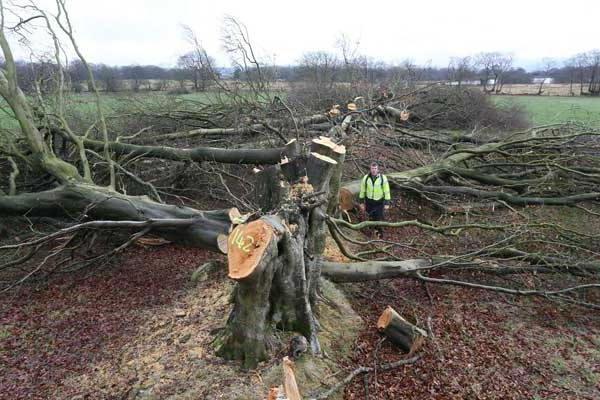
Territory Categories
State Forest Fund lands are divided into:
- operational;
- reserve;
- protective.
They include forestry and forest parks. Illegal felling of forest stands is a criminal offense. Let us further consider the features of responsibility for it.
Art. 260 of the Criminal Code: corpus delicti
This norm establishes penalties for illegal cutting or damage that entailed the cessation of growth of plantations, individual trees, vines, shrubs, committed in a significant amount. AT sentence under Art. 260 of the Criminal Code may include:
- Fine.
- Correctional / compulsory work.
- Imprisonment.
Qualifying Attributes
These include damage or illegal logging and vegetation not related to it, committed:
- Group of persons.
- Subject using official position.
- In large size.
For these acts one of the following penalties may be charged:
- Cash recovery.
- Forced work.
- Imprisonment.
In addition to the last two sanctions, a fine or a ban on certain types of activities or the filling of certain posts may be imposed. 
Particularly qualifying circumstances are the commission of acts:
- In a particularly large size.
- Organized group.
- By prior agreement.
Commentary on Art. 260 of the Criminal Code
A high level of danger of encroachments provided for by the analyzed norm consists in the uncontrolled destruction / damage of vegetation, and a violation of the environmental safety of the population.
Acts established in the new edition of Art. 260 Criminal Code of the Russian Federation, belong to the categories of small (1, 2 parts) and medium (part 3) severity.
Object and subject
Illegal actions encroach, first of all, on the environmental safety of society. It is provided by the rational use of tree-shrub plantings, their reproduction.
The subject of the act is vegetation in natural conditions in a natural state. 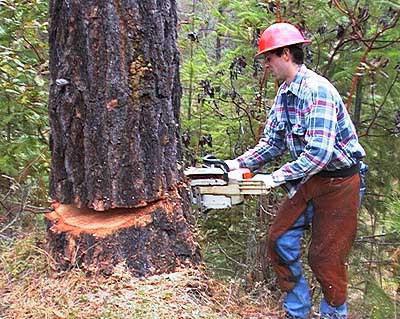
AT court practice under Art. 260 of the Criminal Code when qualifying the actions, the explanations of the aircraft are taken into account. The Plenum in Decree No. 14 of 1998 indicated that the subject of an act may be vines, shrubs, trees growing in territories assigned to the forest and water resources of the Russian Federation, located within settlements, lands of other categories.
Plantations growing on agricultural territories, except for forest shelter belts, summer cottages, personal plots, garden plots, windbreaks, wind trees, etc., are not considered a crime, unless otherwise specified by special regulatory documents.
Objective aspect
It is expressed as an action: illegal cutting or damage to plantations.
Cutting is the separation of the growing trunk from the ground. It can be carried out by cutting, uprooting, etc. As practice shows, crimes by Art. 260 UK are made when laying routes under pipelines, power lines, during exploration, construction, logging and so on. 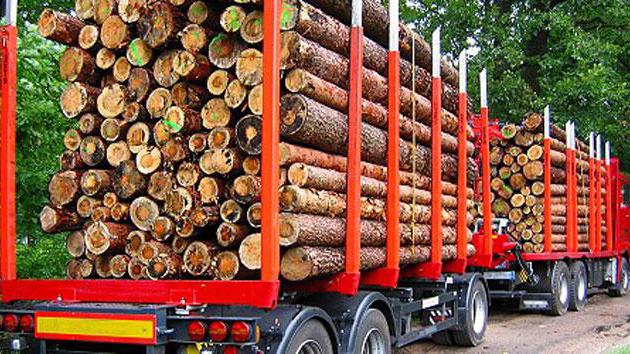
Wrongfulness
Felling is considered illegal if:
- No warrant (special logging ticket).
- With permission issued in violation of felling rules.
- In an amount exceeding that provided for by the order / ticket.
- On time not specified in the document.
- In relation to trees that are not subject to felling, the wrong species or prohibited for felling.
- In a manner not provided for by a special document (warrant / ticket).
- In the territory not intended for cutting down.
- After the adoption of a decision that suspends / prohibits the activity of the forest user or deprives him of the right to exploit the forest fund plot.
Damage indicated in Art. 260 of the Criminal Code, called the loss of the planting of its natural functions (reproduction, restoration, etc.) and drying. This condition can occur when the crown, root system is destroyed, due to fragmentation, splitting, etc.
Normative base
Art. 260 UK considered blanket, i.e. referring to other legal acts regulating environmental safety. Among them are the Forest Code, as well as the Provisions on:
- Protection, use, reproduction, protection of the forest fund, previously owned by agricultural organizations.
- Implementation of state control over the state, protection, use, protection of plantations and their reproduction.
- Sales of standing timber within the framework of tenders / auctions in the Russian Federation in coordination with the Scientific and Technical Council of the Federal Forestry Agency (Federal Forest Service).
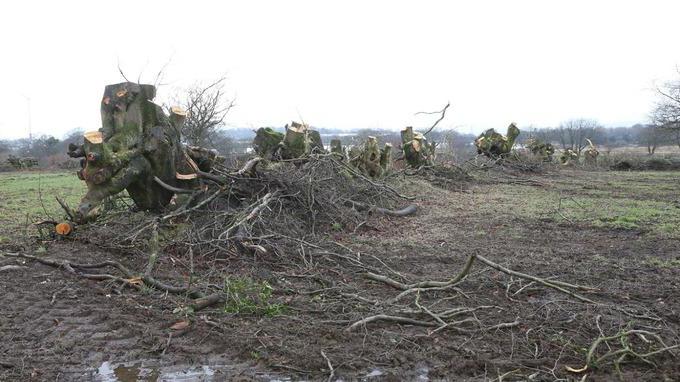
The specifics of the design of the act
The following are mandatory signs of qualifying the actions of subjects as illegal:
- Illegal felling.
- Damage to the extent indicated in the disposition of the norm.
These signs in any case indicate the wrongful conduct of the perpetrator.
The act provided for in the first part has a material composition. It is considered completed at the time of significant damage. According to Art. 260 of the Criminal Code a person will be punished, regardless of whether he used wood or not.
It should be noted that in the current edition of the norm, there are no repeated occurrences among the qualifying attributes. She was expelled from Art. 260 UK provisions of Federal Law No. 162 of 2003 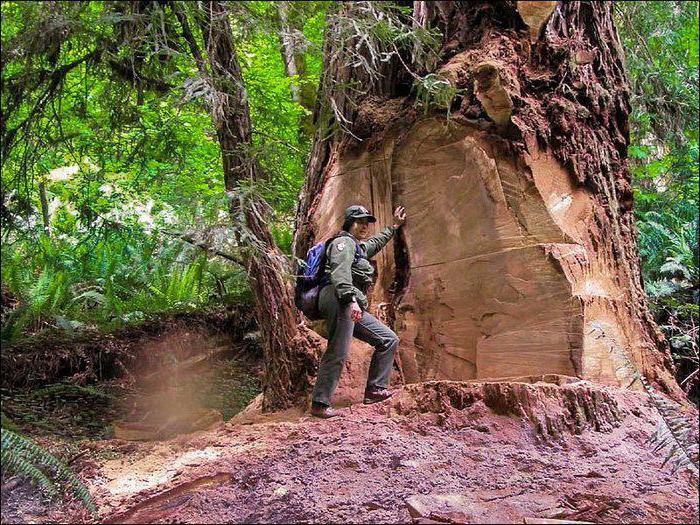
Use of official position
It assumes that the subject used the powers (his status) granted to him in connection with his professional activities to facilitate the commission of the act.
If there are signs of abuse of authority, including by a person holding managerial positions in a commercial or other organization, during illegal cutting / damage to plantations, additional articles 201 or 285 are not qualified. This composition is fully covered by paragraph "c" of 2 parts of Art. 260 of the Criminal Code.
It must be borne in mind, however, that persons such as the foreman, forest ranger, etc., may be held liable under part 2 if they have committed a crime on a site within whose borders their powers are valid.
Amount of damage
It is mentioned in the note to article 260. It identifies significant, major, and especially major damage.
The first is considered harm in excess of 10 thousand rubles. The calculation is made at the rates approved by the Government. Major damage is damage / deforestation of plants for an amount greater than 100 thousand rubles, especially large - 250 thousand rubles.
The determination of the amount of material damage is carried out taking into account the ecological value of the number of cut or damaged vines, shrubs, trees, and their value. The environmental damage caused to other plants as well as animals is taken into account. In addition, the calculation takes into account actual expenses aimed at compensating for the damage that has occurred. 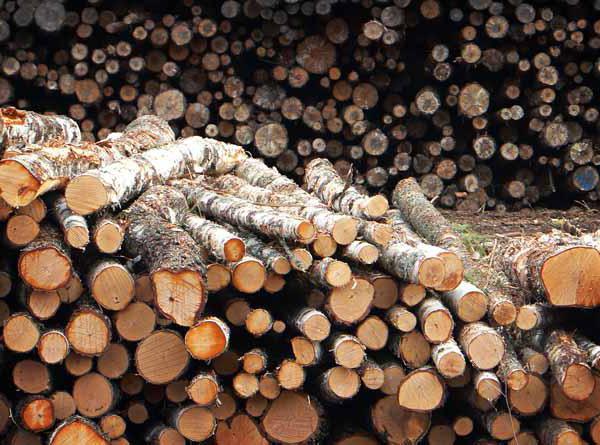
Subjective aspect
It is characterized by intentional or careless guilt.
In the first case, a citizen understands that he is carrying out illegal cutting / damage to vegetation, attributed and not assigned to the forest fund of Russia, or gives an order for this. Moreover, he assumes the inevitability / possibility of damage to the ecological system and wishes / consciously allows its occurrence.
In the case of an assault with an careless form of guilt, the subject also understands the unlawfulness of his actions, anticipates the negative consequences, but arrogantly, without sufficient grounds for this, counts on their prevention or does not imply damage, although he should have foreseen it with due care and attention. Inadvertent damage to the stands takes place, for example, during harvesting or removal of trees during felling.
The mental attitude of a person to a crime can be characterized by guilt in 2 forms. For example, the subject intentionally carries out cutting, assumes significant damage, however, regardless of his will, harm occurs in a particularly large amount.